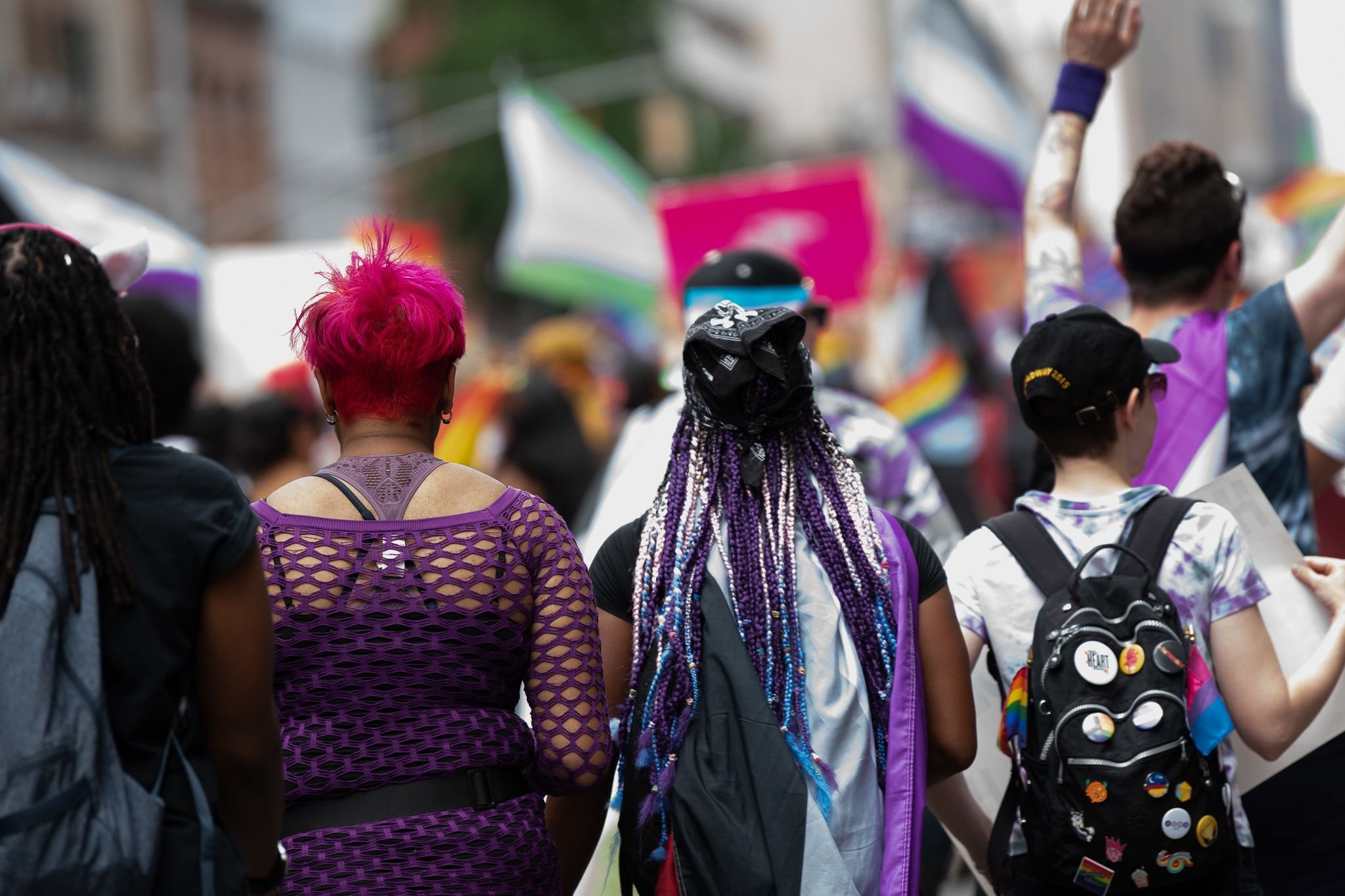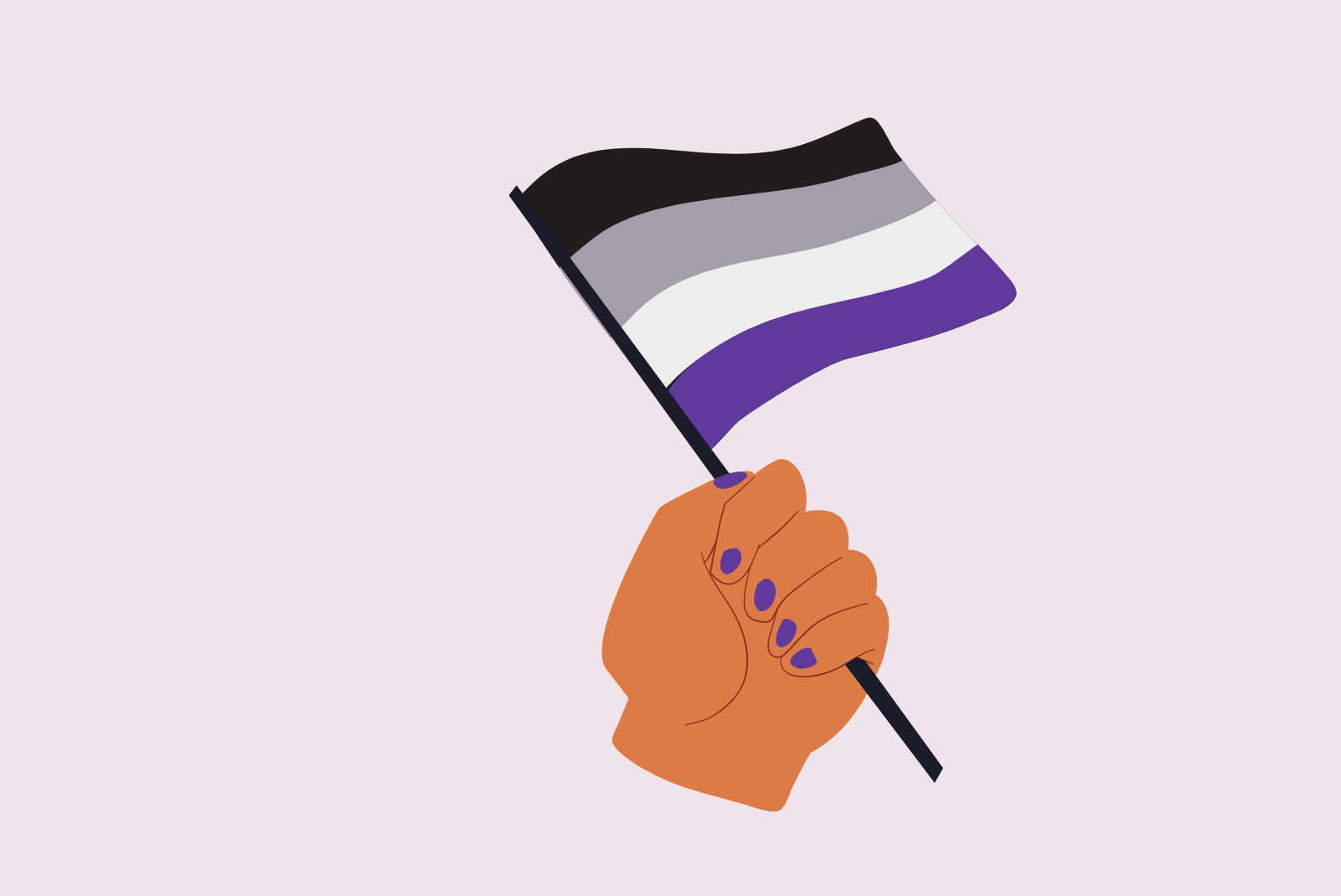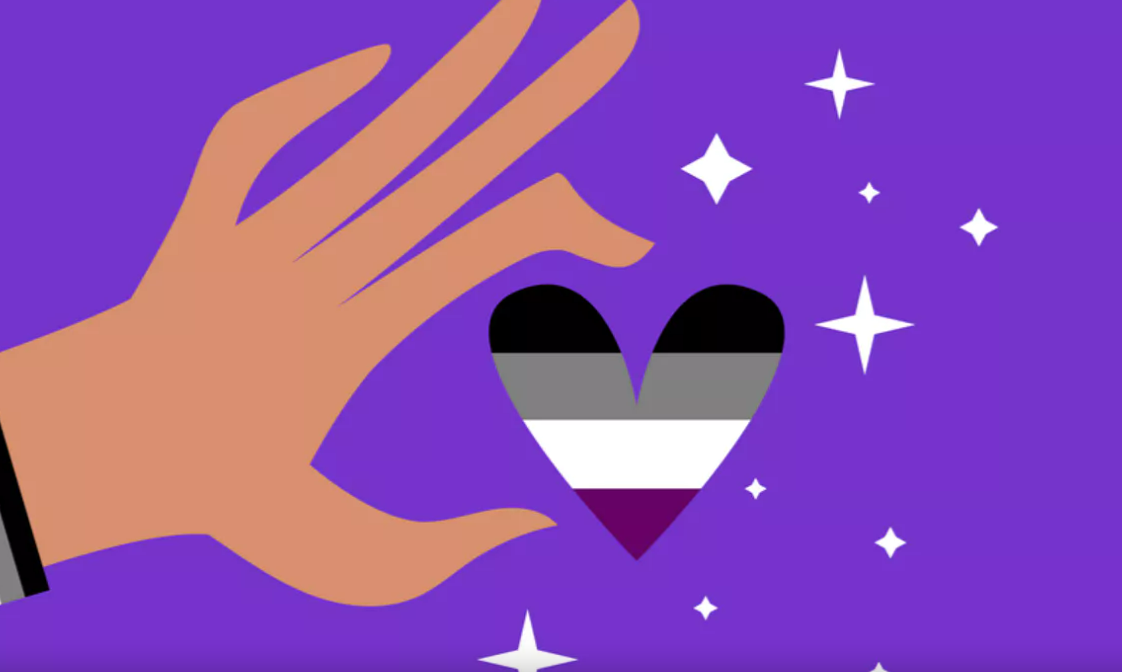Can We Talk About Black Asexuality Please?
*Ace – This is an abbreviated term for Asexual
written by Laura hackshaw // Pronouns: SHE/HER // Instagram: @laurah90s// Medium: @laurahackshaw
Black sexuality is something that is such a mine-field. Not just on a public discourse level but culturally speaking, private attitudes towards our own sexuality are often in some way tied up in things we’ve intuitively learnt through media, family, religion and exploration. So when I stumbled across a YouTuber (a stunning black girl in her 20’s) who labelled her video as ‘Asexual and Aromantic’, I had to do more digging to find out what other black people’s experiences are in the ‘Ace’, community.
Asexuality is something that doesn’t get talked about a lot, especially within the black community. Asexuality and Aromanticism means that you have absolutely no attraction on any level to any sex (whether same sex, opposite or otherwise). The stats say that asexuals make up 1% of both American and British population, respectively -although many more people will be out there who are unaccounted for.
But when you look deeply into some of our own family trees I’m sure many of us can think of the one black auntie or uncle who seems to be eternally single and genuinely would reel at the idea of a partner or romantic company. It’s important to talk about this in terms of how aspects of our culture and heritage may make it harder for some black people to feel at ease discussing their orientation.
Some of the asexual women I’ve been researching bring up the fact that their burgeoning non-sexual development was tied up in positive reinforcement from elders in their lives – who as many of the older black generation did – praised the girls for not being ‘fast’ or ‘easy.’In black households, religious identity tends to be wrapped up with parental expectations of what kind of life their children should live – even down to which kind of partner you pick or how you spend your life. Ideas of their offspring having absolutely no interest in reproduction, the stability and nobility of marriage and other virtues tied to usually Christianity or Islam, can make asexuals seem freaky, disobedient or even demon-possessed, for some, not mentioning who they really are is a tool for survival.Even worse for some, when they are assumed to be secretly homosexual or even sometimes can be labelled as predators because their lack of interest in adult romantic interplay is seen as an oddity and something to be weary of. In some sense, lack of sexual feeling is often paired of with sexual immaturity and childlikeness.Within the parameters of black asexuality, it seems many people often feel alienated from black culture altogether, with many people describing feeling totally detached from all other aspects of their roots either due to or in alignment with their asexuality.
There also needs to be some historical context bought into the light here: for generations ‘white fear’ has labelled black men as being sexually uncontrollable and animalistic, quite literally needing to be beaten, mutilated or killed into submission. For black women, choices were few and far between too. With stereotypes of the black woman’s sexuality conflating between the likes of ‘The Vixen’ and ‘The Mammy.’ Asexuals within the black community may find that they are simply tossed into the category of the ‘mammy,’ whom subverted all sexual desires and even the remote desire forsimple companionship as it gave her endless time and ‘energy’ to care for children, the home and anyone other than herself – all with a song in her spirit and a smile on her face.In her book ‘Stolen Women: Reclaiming Our Sexuality, Taking Back Our Lives,’ Dr Gail Elizabeth Wyatt clearly distinguishes the sexual archetypes that have been created about black women.
The She-Devil – “the most negative characteristics attributed to African women before and during slavery – the immoral, conniving seductress who loves sex anytime, anywhere…”
The Workhorse – “through hard, backbreaking work….thought to be so strong that she could tolerate rape or physical abuse. Nobody messed with her but of course nobody wanted her either….she is perceived as hard, unfeminine and masculine.”
The Mammy – “Mammy was characterised as an obese, domesticated, asexual house slave with a world of wisdom, the patience of Job, a heart of gold and the willingness to breastfeed the world.”
The research again, typifies that black asexuals feel a burgeoning pressure to procreate or at least display interest in the opposite sex at a heightened level. With one black male from Canada sharing “being black is more than the promiscuity, clothing and music you listen to.” He also conceded that it is much harder for black women than it is for him to shrug off societal concerns that she is not showing interest in love or marriage. A black asexual woman based in Brazil also shows how expectations can be linked to failure to present as the right kind of black woman “I’m a black, geeky, female asexual…and quit relaxers. My family thinks I’m hopeless.”Similarly, in an article by Anais Rivero – she uncovers once again that lack of representation of black women like her in the media, left her feeling isolated and ostracized until she discovered an online community of asexuals.Going forward, it is important for the stories and experiences of black asexuals to be explored, discussed and collated. In doing so, hopefully it will provide a space for those who identify as Ace to feel free to be themselves but also so that we can help reshape the future of how all black sexuality is looked upon.


